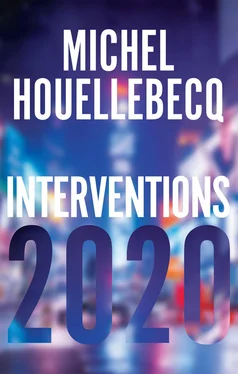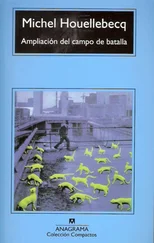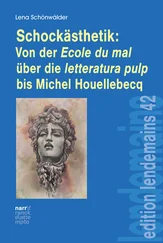To establish his thesis, the author undertakes a comparative statistical analysis of poetic texts and prose texts (the height of prosaic being for him – and this is highly significant – the writings of the great scientists of the end of the nineteenth century: Louis Pasteur, Claude Bernard, Marcelin Berthelot). The same method allows him to observe that the poetic gap is much wider among the Romantics than among the classical writers, and increases even more among the Symbolists. Intuitively, we probably suspected as much; still, it’s nice to see it established so clearly. Once we’ve finished reading the book, we’re certain of one thing: the author has indeed spotted certain deviations characteristic of poetry; but what do all these deviations lead to? What is their purpose, if they have one?
After a few weeks of crossing, Christopher Columbus was informed that half of the provisions were exhausted; there was no sign of approaching land. It was at this precise moment that his adventure turned heroic: when he decided to continue west while knowing that there was no human possibility that he would get back home. From the introduction to Le Haut Langage , Jean Cohen plays his cards: on the question of the nature of poetry, he will be deviating from all existing theories. What makes poetry, he tells us, is not the addition of a certain music to prose (as was long believed when every poem had to be in verse); nor is it the addition of an underlying meaning to the explicit meaning (Marxist, Freudian interpretations, etc.). It isn’t even the multiplication of secret meanings hidden under the primary meaning (the theory of polysemia). In short, poetry isn’t prose plus something else: it’s not more than prose, it’s something other than prose. La Structure du langage poétique ended with the observation that poetry moves away from ordinary language, and moves away from it more and more. A theory then naturally comes to mind: the goal of poetry is to establish a maximum deviation, to break or deconstruct all existing codes of communication. Jean Cohen also rejects this theory; all language, he assures us, accepts the function of intersubjectivity, and poetic language is no exception to this rule: poetry speaks differently of the world, but it does indeed speak of the world, as human beings perceive it. It’s exactly at this point that he takes a considerable risk: for if the deviant strategies of poetry are not in themselves their own goal, if poetry is really more than a piece of linguistic research or a game with language, if it really aims to establish a different way of speaking of the same reality, then we are dealing with two irreducible visions of the world.
The marquise went out at five seventeen; she could have gone out at half past six; she could have been a duchess and gone out at the same time. 2The water molecule is made up of two hydrogen atoms and one oxygen atom. The volume of financial transactions increased dramatically in 1995. To free itself from Earth’s pull, a rocket must develop a lift-off thrust directly proportional to its mass. Prosaic language organizes reflections, arguments, facts; basically, it mainly organizes facts. Events that are arbitrary, albeit described with great precision, intersect in neutral space and time. Any qualitative or emotional aspect disappears from our view of the world. This is the perfect realization of Democritus’ sentence: ‘Sweet and bitter, hot and cold, colour are only opinions; there is nothing true except atoms and the void.’ This is a text of real but limited beauty, which irresistibly evokes the famous Minuit style, 3whose influence has persisted for forty years, precisely because it corresponds to a democratic metaphysics that is still largely the majority view; so clearly a majority view that it’s sometimes confused with the scientific program as a whole, although science has made merely a circumstantial pact with it, in its fight against religious thought (though this pact has now lasted for several centuries).
‘When the low, heavy sky weighs down like a lid …’ This terribly loaded line, like so many lines by Baudelaire, aims at something quite different from transmitting information. It’s not only the sky, it’s the whole world, the being of the speaker, the soul of the listener that are imbued with a tone of anguish and oppression. Poetry occurs; the affective meaning pervades the world.
Poetry, according to Jean Cohen, aims to produce a fundamentally alogical discourse, in which all possibility of negation is suspended. For the kind of language that informs, what is might not be, or might be quite different, elsewhere, or in another time. Poetic deviations, on the contrary, aim to create an ‘effect of limitlessness’ where the field of affirmation invades the whole world, without letting the contradiction subsist as an outside. This brings the poem closer to more primitive manifestations, such as lamentation or howling. The register is admittedly considerably wider; but the words are fundamentally of the same nature as the cry. In poetry, words start to vibrate, they find their original vibration; but this vibration is not only musical. Through words, it’s the reality they designate that regains its power of horror or enchantment, its primary pathos. Azure is an immediate experience. Likewise, when daylight declines, objects lose their colours and contours, slowly blend into a darkening grey, and human beings feel alone in the world. This was true from their earliest days on earth, this was true even before there were human beings; it’s much older than language. These overwhelming perceptions are what poetry seeks to rediscover; of course it uses language, the ‘signifier’; but, for poetry, language is only a means. Jean Cohen sums up his theory with this formula: ‘Poetry is the song of the signified.’
It’s therefore understandable that he came up with another idea: certain modes of perception of the world are in themselves poetic. Anything that contributes to dissolving limits, to making the world a homogeneous and poorly differentiated whole will be imbued with poetic power (this is the case with mist, or twilight). Certain objects have a poetic impact, not as objects, but because, insofar as they crack open the limits of space and time by their mere presence, they induce a particular psychological state (and it must be recognized that his analyses of the ocean, ruins, and ships are disturbing). Poetry is not just another language; it’s another gaze. A way of seeing the world, all the objects in the world (highways as much as snakes, parking lots as much as flowers). At this point in the book, Jean Cohen’s poetics no longer belongs to linguistics at all; it relates directly to philosophy.
All perception is organized around a twofold difference: between the object and the subject, between the object and the world. The sharpness with which these distinctions are envisaged has profound philosophical implications, and the existing metaphysics can be distributed along these two axes without being forced. Poetry, according to Jean Cohen, leads to a general dissolution of reference points: object, subject, world merge into the same affective and lyrical atmosphere. The metaphysics of Democritus, on the other hand, brings these two distinctions to their maximum clarity (a blinding clarity, the dazzle of the sun on white stones, on an August afternoon: ‘It’s nothing but atoms and the void’).
In principle the matter seems cut and dried, and poetry condemned – as the attractive residue of a prelogical mentality, that of the primitive or the child. The problem is, Democritus’ metaphysics is wrong. More precisely: it’s no longer compatible with twentieth-century advances in physics. Indeed, quantum mechanics invalidates any possibility of a materialist metaphysics, and leads to a fundamental re-examination of the distinctions between object, subject and world.
Читать дальше







